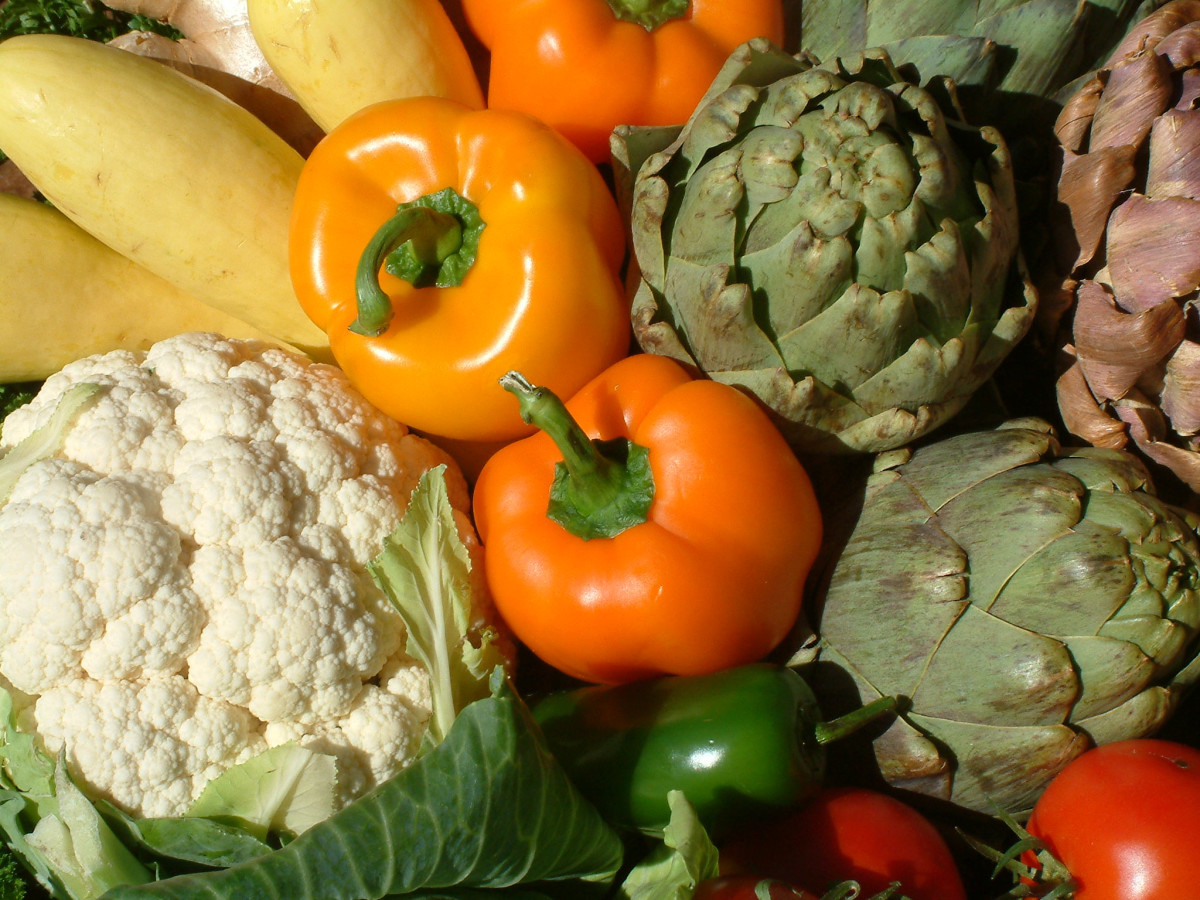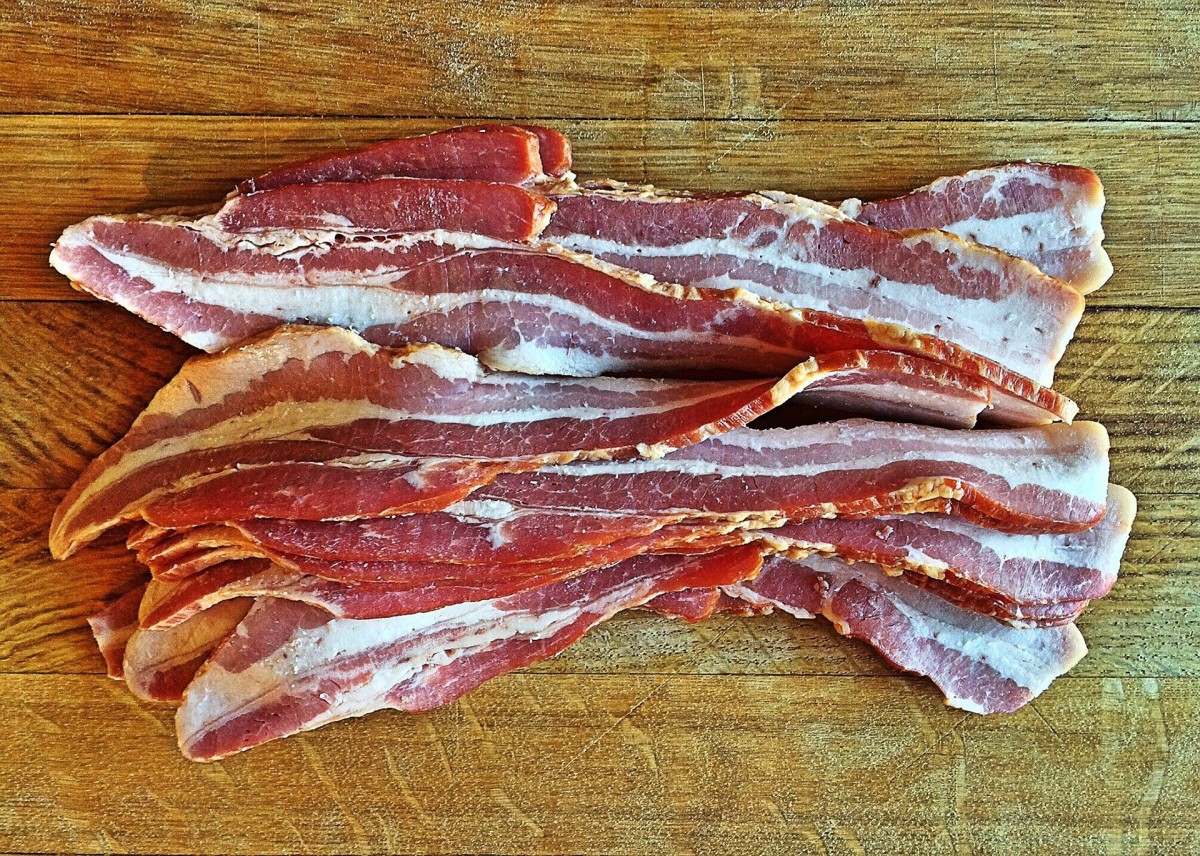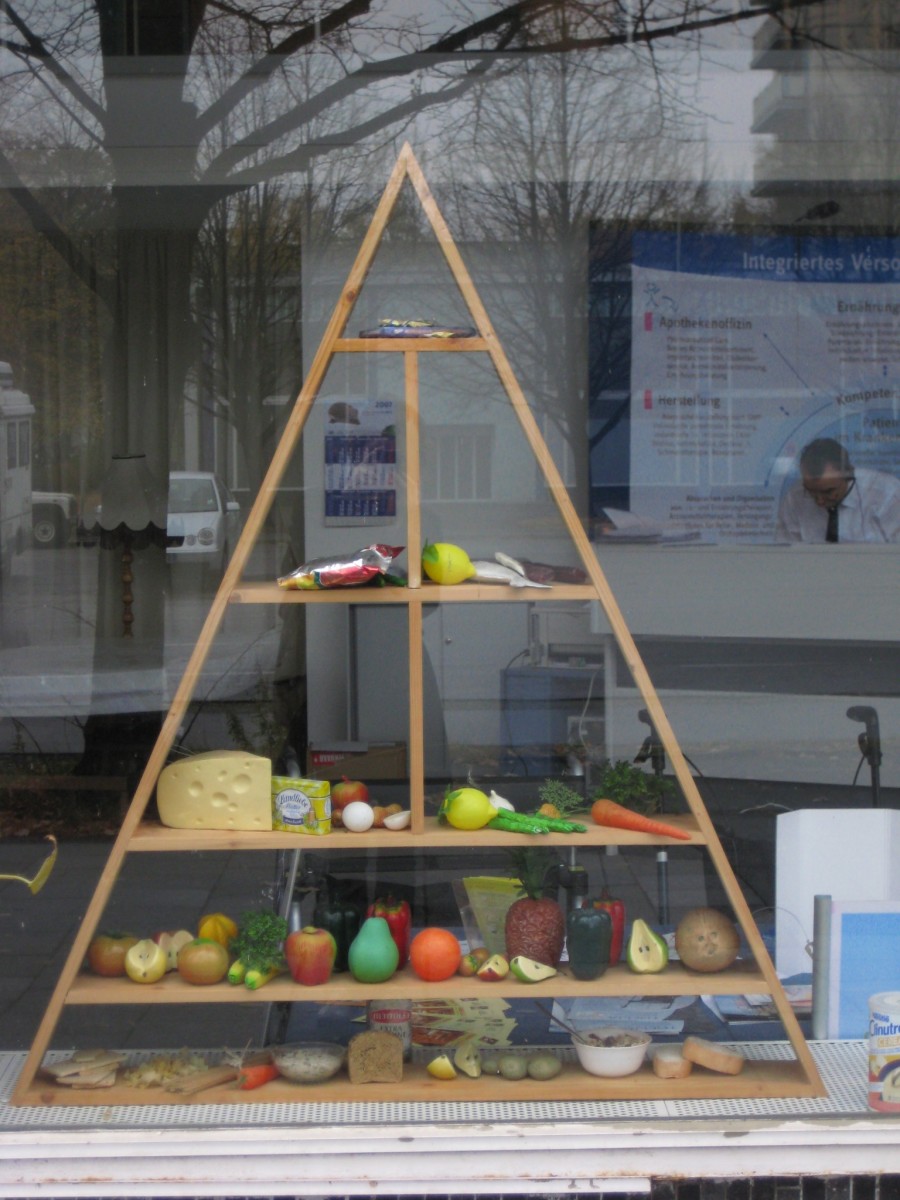Reasons to Stop Eating Meat
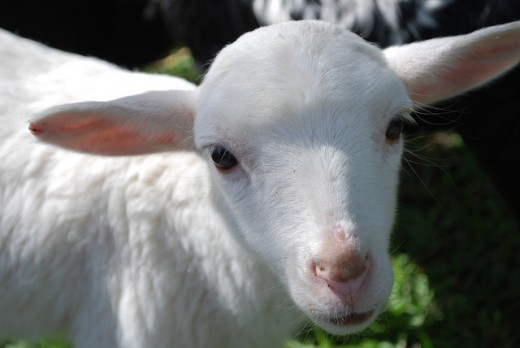
Nothing will benefit human health and increase chances for survival of life on Earth as much as the evolution to a vegetarian diet
— Albert EinsteinGood Health and Goodbye to Misconceptions!
There are numerous health and worldwide benefits from not eating meat. This requires putting aside certain attitudes and misconceptions that don't stand up to modern science. Just because our parents or peers believe something, doesn't make it right or true. Millions of people are vegetarian world-wide, through cultural, religious/spiritual and health reasons
There are quite a few misconceptions regarding our physiology that are used by meat eaters to explain why we should eat meat.We'll look at all of this in more detail, but there are two which stand out and are worth analyzing immediately:
- Canines. Check out dog or lion canines - huge and long hooked teeth for tearing flesh. Do we have teeth like that? No. Our canines and molars are perfectly adapted to grinding down, not tearing.
- Intestinal length. Carnivorous animals have short intestines, so that meat can pass through quickly before it starts to putrefy and lead to disease. We have long intestines, like other herbivores. This is why many health bodies recommend staying away from meat as much as possible. We don't process meat efficiently. Clearly, when we started to eat meat when vegetation was lean, we took on plenty of risks doing so. Happily, we don't need to anymore!
See the table below for a clear comparison between the physiological differences between meat eating animals and herbivorous animals.
With the United Nations Environment Program calling for "... a significant shift in diets away from animal based proteins towards more vegetable-based foods in order to dramatically reduce pressures on the environment", it's worth considering the benefits of a vegetarian diet - both for ourselves and the planet and dispelling some of the myths regarding vegetarianism. It's time to rethink what industry has force fed us through advertising and what our fathers and forefathers believed.
Is Killing Animals for Food Really Necessary
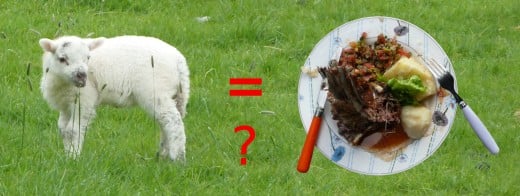
When we kill the animals to eat them, they end up killing us because their flesh, which contains cholesterol and saturated fat, was never intended for human beings.
— William C. Roberts, M.D., editor of The American Journal of CardiologyHealthy Eating for a Healthy Life
Today, conventional medicine discourages eating an excess of meat. This is quite a swing from the old days, when meat eating was seen as something that would be done daily. Today however, we have access to different types of food that replace the necessity for eating meat.
Also, we're starting to realize the fundamental misunderstanding with regards to protein requirements and protein sources - that many beans provide a complete protein and often provide per gram more protein than meat. Top athletes such as Scott Jurek, who has been the winner of many ultra marathons around the world, is a vegan. We should embrace this evolution that allows us to move away from meat products.
On a personal level, many people move away from meat for health reasons and feel better in ways they hadn't imagined. So before looking at the ins and outs of proteins, vitamins, and so on, as related to a vegetarian lifetsyle, here's what vegetarianism can do for your health!
GQ Magazine names the world's best burger... and it's vegan!
- World's best burger is vegan – Superiority in New York City crowned by GQ | Metro News
The famous $6 (£4) Superiority Burger, which has a fully vegan patty, has just been named the best the world has to offer by GQ magazine.
Research in the UK has already shown that vegetarians have lower rates of cancer and significantly lower (32 per cent less) rates of heart disease.
— Liz O’Neill, of the Vegetarian SocietyA Longer Life!
Studies have shown that vegetarians (following a well-balanced low-fat high-fibre diet) often have lower incidences of coronary artery disease, hypertension, obesity and certain forms of cancer. A vegetarian diet is usually lower in fat, as vegetarians tend to eat more polyunsaturated fat than saturated fat (animal products are the major sources of saturated fat). So a typical vegetarian diet closely matches expert dietary recommendations for healthy eating, being low in saturated fat and high in fibre, complex carbohydrates, and fresh fruit and vegetables - see research from the Harvard School of Public Health below.
As a result, vegetarians tend to live longer than meat-eaters.
The evidence can be seen at the German Cancer Research Center. From their website: "...vegetarians had a 30 % lower risk of dying from ischemic heart diseases compared to non-vegetarians. Although this finding failed to reach statistical significance, it may be truly attributed to abstinence from meat and is in line with the hypothesis that animal fat and a high cholesterol diet promote ischemic heart disease" Read the whole article here http://www.dkfz.de/en/presse/pressemitteilungen/2005/dkfz_pm_05_26_e.php
To put it simply, a vegetarian diet generally puts less stress on a person's system and longer life can generally be expected.
However, as well as avoiding saturated fats and so on, avoiding meat also removes the threat of other toxins entering the body.
Avoiding Toxins
A lot of non-organically reared cattle have been tampered with to increase produce size, through the use of growth hormones and such like. As a result, consuming this meat also means that these chemicals - that have no place in the food chain - are consumed by human beings. Also, non-organic intensively farmed animals that are meant for human consumption, are often stressed animals, and the coctail of hormones produced by these creatures are also passed into the food chain.
On another note, this is worth considering: When an animal approaches its moment of death, and is about to be slaughtered, what happens to all the adrenalin that is released? It goes straight into the meat, which ends up on your plate.
Something else to think about: What happens to all these toxins that are consumed by eating meat?
The Three Arguments Used to Undermine Vegetarianism
The following three points are often used by meat eaters to undermine vegetarianism:
- Protein - where do you get your protein from?
- Vitamins - where do you get your vitamins from?
- Human physiology - we are like omnivorous animals!
In conversation, meat eaters will often say things such as, vegetarians can't get enough protein, or vitamins. Furthermore, they'll often cite human physiology as an example as to why we should eat meat, and end their arguments by saying things such as, this is just the way life is. Lions kill gazelle, we also have to kill animals to live - and so on. They even think that vegetarians must somehow be weak, forgetting the number of vegetarian athletes in (healthy!) existence.
However all of these arguments don't stand up on closer inspection. In the following section the actual truth is put forward, with the help from information found at the Harvard School of Public Health.
Protein
The Harvard School of Public Health looks at the protein package delivered by various meats and lentils i.e. the protein to fat ratio. These are the findings:
- Meat: A 6-ounce broiled porterhouse steak delivers 38 grams of protein and delivers 44 grams of fat, 16 of them saturated. i.e. more fat than protein (Nearly three-fourths of the recommended daily intake for saturated fat.)
- Fish:The same amount of salmon gives delivers 34 grams of protein and 18 grams of fat, 4 of them saturated. i.e. more protein than fat
- Lentils: A cup of cooked lentils has 18 grams of protein, but under 1 gram of fat. i.e. hardly any fat at all
It recommends to "...pay attention to what comes along with the protein. Vegetable sources of protein, such as beans, nuts, and whole grains, are excellent choices, and they offer healthy fiber, vitamins and minerals."
However, for those who won't change to vegetarianism, it's worth listening to what they have to say on what types of meat are best:
"The best animal protein choices are fish and poultry. If you are partial to red meat, stick with the leanest cuts, choose moderate portion sizes, and make it only an occasional part of your diet."
So there we we have it. From the top brains of the country - stay away from red meat. Stick to the white meats if you must.
Check it out here: http://www.hsph.harvard.edu/nutritionsource/what-should-you-eat/protein/
Physiology is often brought up by meat eaters, to support their view that we should be eating meat (usually only citing our two canine teeth). But take a look at the comparisons below, and decide for yourself (this is taken from a chart by A.D. Andrews, Fit Food for Men, Chicago: American Hygiene Society, 1970)
Comparing Human Physiology to that of Carnivorous and Herbivorous Animals
Physiological characteristic
| carnivorous animals
| herbivorous animals
| humans
|
|---|---|---|---|
Claws
| Yes
| No
| No
|
Skin pores for perspiration
| No - perspire through tongue
| Yes
| Yes
|
Sharp front teeth
| Yes - no flat grinding molars
| No - flat grinding molars
| No - flat grinding molars
|
Intestinal tract length
| Only 3 times body length to process decaying meat quickly
| 10-12 times body length
| 10-12 times body length
|
Strong hydrochloric stomach acid to digest meat
| Yes
| No - 20 times weaker than meat eater
| No - 20 times weaker than meat eater
|
Salivary glands in mouth to pre-digest grains and fruits
| No
| Yes
| Yes
|
Acid/Alkaline saliva
| Acid saliva with no enzyme ptyalin to pre-digest grains
| Alkaline saliva with ptyalin to pre-digest grains
| Alkaline saliva with ptyalin to pre-digest grains
|
Vitamin B12
It's easy to get overly worked up over the B12 issue and some of the arguments that circulate around are often based on a misunderstanding of the whole issue.
This page here describes the stuation clearly: http://www.vibrancyuk.com/B12.html
Check out the Vegetarian Society B12 Factsheet: : www.vegsoc.org/page.aspx?pid=807
Conclusive Proof that Humans are Better Adapted to a Plant Based Diet
The table above is very clear as to where we stand in the carnivore/herbivore kingdom. While it's true that we are Omnivores (as we do eat meat as well as vegetables and fruits), the truth is that we're simply better adapted to a plant based diet. It has been argued that we as humans migrated North, or as the climate changed to become much colder, we had to adapt our dietary intake to include meat, not just nuts, fruits and seeds. While this bestowed some advantages, it was by no means free of drawbacks.
Environmental
The United Nations Environment Programme calls for "... a significant shift in diets away from animal based proteins towards more vegetable-based foods in order to dramatically reduce pressures on the environment." Read it all here: http://www.unep.org/Documents.Multilingual/Default.asp?DocumentID=628&ArticleID=6595&l=en
The livestock sector produces about 15% of global greenhouse gases, roughly equivalent to all the exhaust emissions of every car, train, ship and aircraft on the planet. So without a concerted effort not to eat meat, global warming will just continue.
This is at last recognition of that fact, that large scale animal rearing puts intensive pressure on the environment, and is really unnecessary as there are alternatives.
Creatures with Feelings Being Used for Food Entertainment
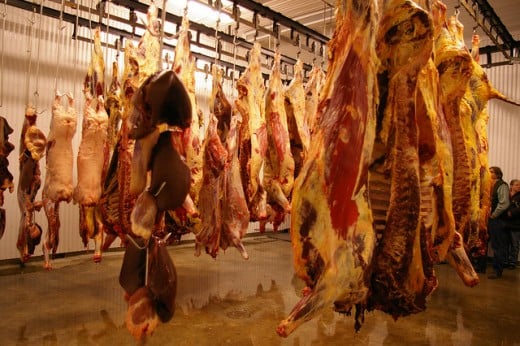
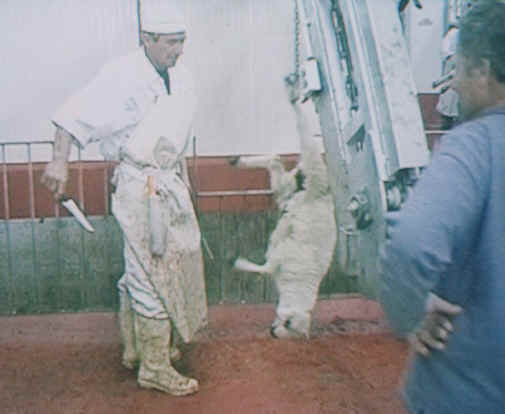
Compassion
Becoming vegetarian is often said to be a path of compassion - compassion for all living creatures. The Book of Genesis says: 'Then God said, "Let us make man in our image, in our likeness, and let them rule over the fish of the sea and the birds of the air, over the livestock, over all the earth, and over all the creatures that move along the ground."'
If we're created in the likeness of God, is it not fitting to show some of the qualities associated with God, such as compassion?
And is our rule over all the creatures, not meant to be that of a caretaker, rather than a slaughterer and destroyer?
Humans seem to willingly forget that all creatures - all creatures - are sentient beings. Perversely, we love to see little lambs jump around the fields in spring, forgetting that they're going to be separated from their mothers and have their throats slit.
- The Intelligence and Sentience of Animals
Animals are far more cognizant than we give them credit for. Check out these amazing videos, including elephants that can paint pictures and the woman who communicates with a dangerous leopard!
Sources
Vegetarian Soc B12 Factsheet http://www.vegsoc.org/info/b12.html
Harvard School of Public Health: http://www.hsph.harvard.edu/nutritionsource/what-should-you-eat/protein/
UN Environment Program: http://www.unep.org/Documents.Multilingual/Default.asp?DocumentID=628&ArticleID=6595&l=en
German Cancer Research Center. http://www.dkfz.de/en/presse/pressemitteilungen/2005/dkfz_pm_05_26_e.php
The health benefits of a vegetarian diet


